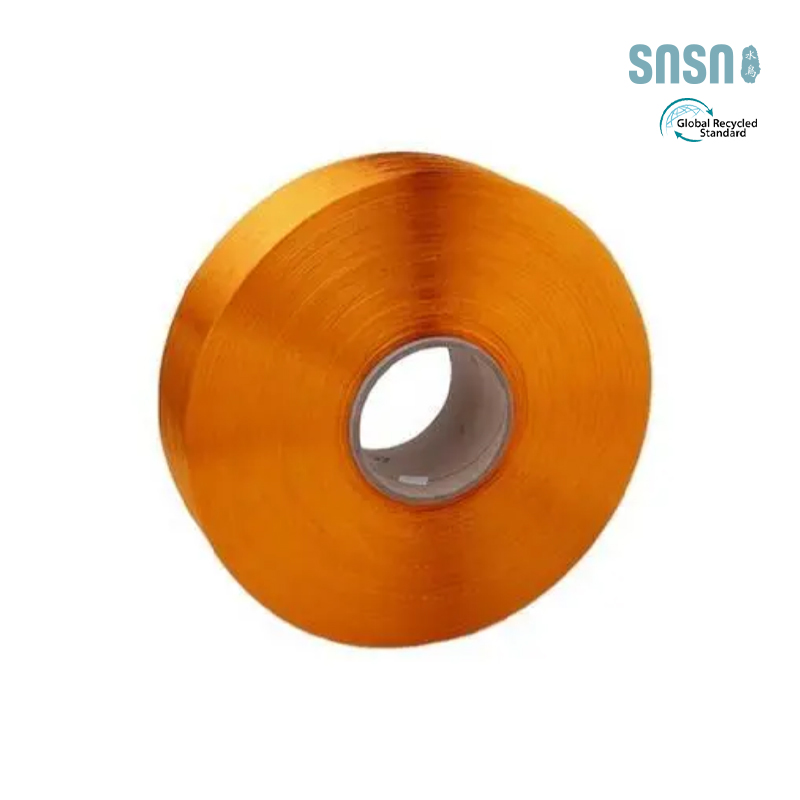In an era where environmental stewardship is not just a preference but an imperative, the textile industry faces mounting pressure to transform its production processes. Recycled Partially Oriented Yarn (POY) emerges as a compelling solution—melding ecological responsibility with industrial efficiency. This innovation is more than a trend; it is a paradigm shift, promising to reshape how manufacturers source raw materials and contribute to a circular economy.
Understanding Recycled POY
Recycled POY refers to yarn spun from regenerated polymers derived predominantly from post-consumer and post-industrial plastic waste. Unlike virgin POY, which originates from newly synthesized polymers such as polyethylene terephthalate (PET), recycled POY leverages materials salvaged from discarded bottles, fabric scraps, and other plastic refuse. The partially oriented yarn is an intermediate textile product, offering the foundational fiber for downstream processes like drawing, texturizing, and weaving.
This innovative yarn not only conserves raw materials but also significantly reduces the environmental footprint associated with textile manufacturing. Utilizing recycled polymers mitigates reliance on fossil fuels, curtails greenhouse gas emissions, and diverts tons of plastic waste from landfills and oceans.
The Manufacturing Process: A Symphony of Precision and Sustainability
The production of recycled POY is a sophisticated operation, integrating advanced mechanical and chemical techniques to ensure the integrity and quality of the yarn. The process begins with the meticulous collection and sorting of plastic waste, a critical step that guarantees the purity of input materials. Following this, the polymers undergo cleaning and shredding, transforming into flakes or pellets.
Subsequently, these pellets are melted and extruded through spinnerets, forming filaments that are cooled and stretched to achieve partial orientation. The resultant yarn boasts a balance of tensile strength and elongation properties, making it ideal for various textile applications.
Advantages That Resonate with Modern Markets
The allure of recycled POY extends beyond its environmental virtues. It delivers tangible economic and functional benefits that appeal to manufacturers, brands, and consumers alike.
Cost Efficiency: While initial investments in recycled polymer sourcing and processing may be higher, the long-term cost savings are significant. Reduced dependency on virgin raw materials shields businesses from volatile petrochemical markets.
Sustainability Credentials: Incorporating recycled POY aligns with corporate social responsibility (CSR) mandates and global sustainability goals. It enables companies to transparently demonstrate their commitment to eco-conscious production, enhancing brand reputation.
Performance and Versatility: Modern advancements ensure recycled POY rivals virgin yarn in quality. It is highly adaptable, serving diverse sectors from apparel and home textiles to automotive fabrics and industrial uses.
Circular Economy Contribution: By closing the loop on plastic consumption, recycled POY embodies the principles of circularity, encouraging reuse and recycling within the supply chain.

Overcoming Challenges and Pioneering Progress
Despite its advantages, recycled POY faces challenges that necessitate ongoing innovation. Quality consistency remains paramount, as variability in recycled feedstock can affect yarn performance. Industry stakeholders invest heavily in refining sorting technologies and polymer purification to surmount these hurdles.
Moreover, scaling production to meet global demand requires infrastructural enhancements and collaborative initiatives among manufacturers, recyclers, and policymakers. Incentivizing plastic waste collection and recycling frameworks is essential to secure a reliable supply chain.
The Future of Textiles is Recycled POY
As consumer awareness around sustainability intensifies, demand for eco-friendly textiles is poised to soar. Recycled POY is not merely a response to environmental concerns but a strategic enabler of a sustainable textile economy. It empowers manufacturers to innovate responsibly without compromising on quality or cost-effectiveness.
Investing in recycled POY is investing in a resilient future—one where fashion and function coalesce with environmental integrity. By championing recycled POY, the textile industry can decisively reduce its carbon footprint and redefine material consumption, paving the way for a cleaner, greener planet.
Recycled POY stands as a beacon of sustainable ingenuity within the textile sector. It exemplifies how technological advancements and environmental imperatives can converge, fostering a new era of manufacturing that honors both economic and ecological priorities. The journey towards widespread adoption is underway, heralding a future where sustainability is woven into the very fabric of production.

 English
English عربى
عربى Türk
Türk Español
Español



















